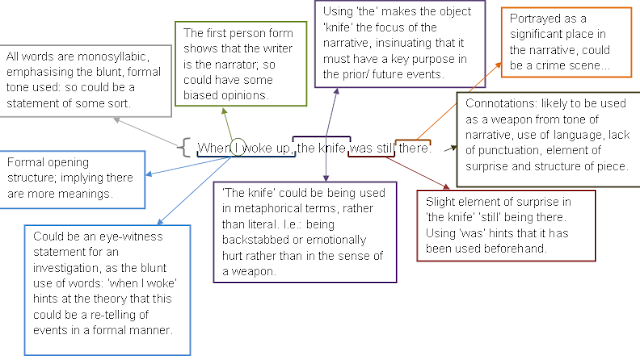Response to narrative: Porphyria’s Lover.
Robert Browning, author and narrator of the story, is known
for his dramatic monologues in the form of poetry, and ‘Porphyria’s Lover’ is
one of his well known ones. The pattern of the poem has an ‘A,B,A,B,B’ rhythm;
and has four stresses to a line- known as ‘iambic tetrameter’. From the title,
we gain the knowledge that Porphyria has a ‘lover’, whether that may be someone
that she is having an affair with, or is a way of saying ‘wife’ in a loose
context; it is not clear, so it could be either, or simply just a fling with
the man describing her. The poem comes across as being very descriptive and
begs a lot of questions throughout. Why does he not respond when she ‘call’d’
him? Why does she submit whilst he ‘debated’ what to do; and eventually
concludes strangling her is the answer? Why is ‘God not saying a word’ relevant
to how he feels? The large description associated with Porphyria about her
actions, how she made him feel just by entering, how she ‘murmured’ I love you,
how he uses the word ‘to-night’ gives the impression that they have a lot of
confused history together. I think he is unsure of his own actions, but they
both knew it would end in death eventually. He has a ‘sudden’ thought, but
still ‘debates’ what to do, and they do not ‘stir’ all night; showing his
content with what he has done. I think the line that sums up the whole poem is
line 26; ‘but passion sometimes would prevail’...showing their relationship,
why and in what way he killed her, how he can be sure that ‘she felt no pain’.
